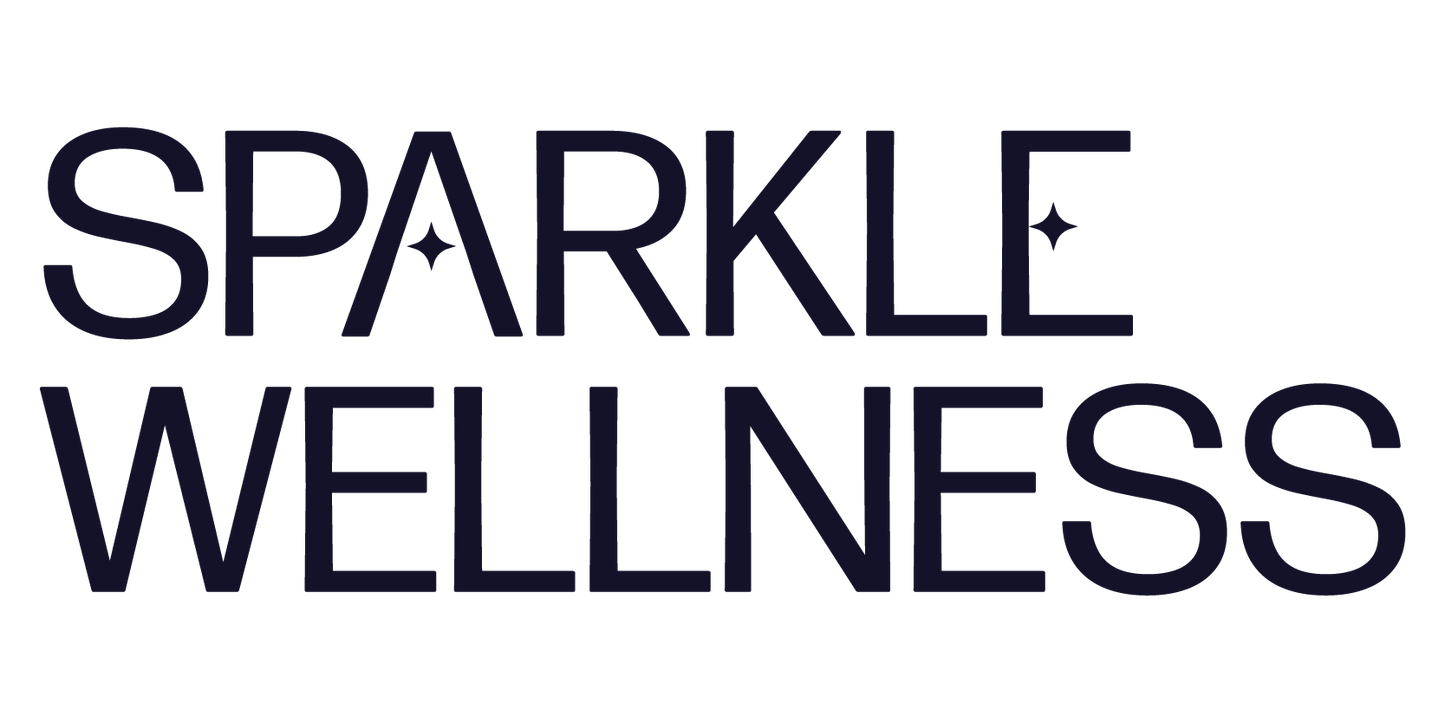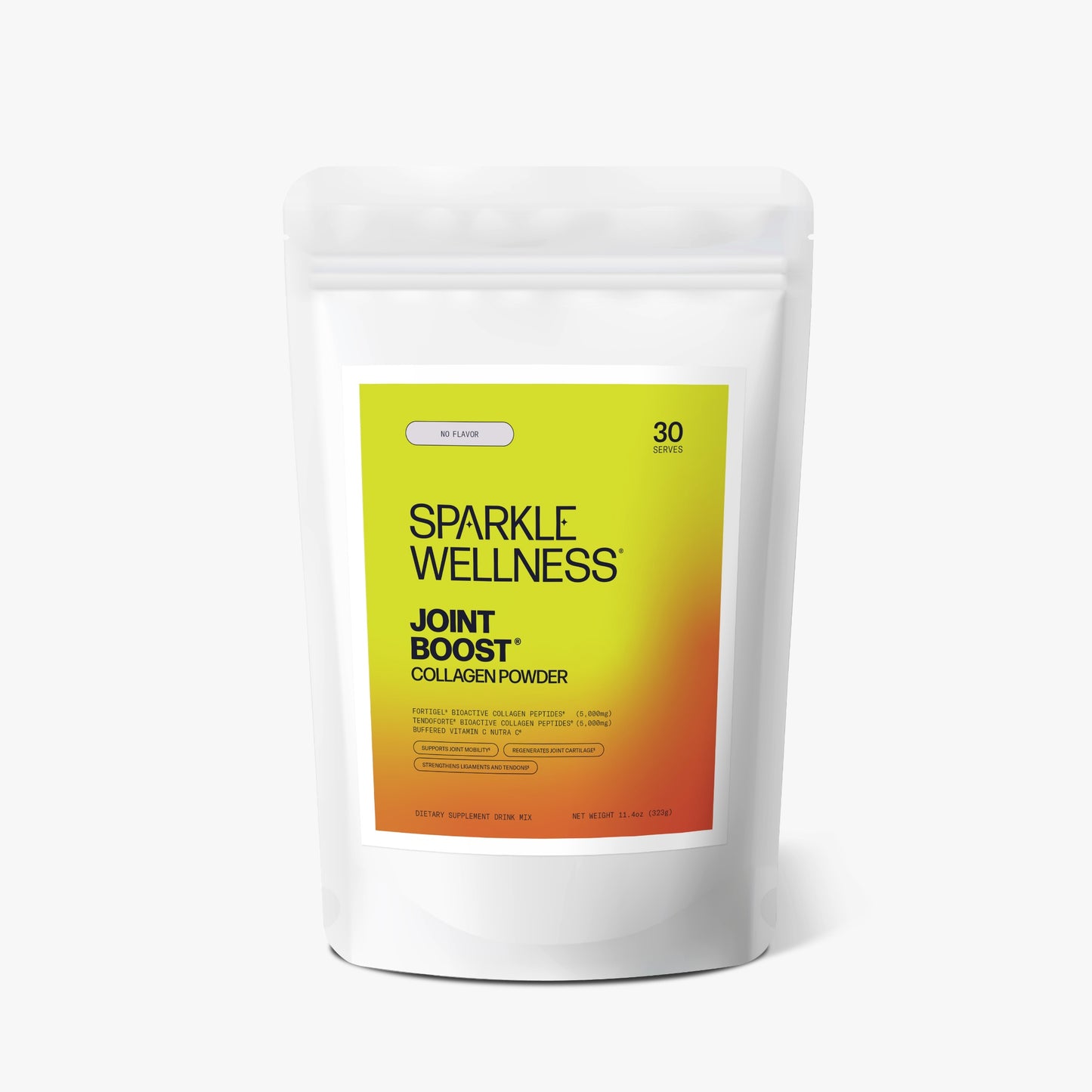IS COLLAGEN A COMPLETE PROTEIN?
Written by Sara Atlas and Leanne Nieto, registered dietitians
When people hear "protein," they often think of muscle-building powders or recovery shakes. But not all proteins are the same. As registered dietitians, we've noticed that collagen is one of the most asked about and misunderstood types of protein. While it is a protein, it works very differently from the complete proteins you get from food or other supplements.
Collagen: A unique, functional protein — but not a complete one
Collagen is the primary structural protein in your body, making up about 30% of your total protein content. It supports the integrity of your skin, joints, tendons and bones. However, it’s what’s known as an incomplete protein — it lacks the essential amino acid tryptophan and has lower levels of others like methionine and histidine¹. That means it’s not intended to replace dietary protein sources like chicken, legumes or whey for muscle growth.
Collagen's primary role is to support and repair, not to fuel your muscles after a workout. Instead of providing all the amino acids needed for muscle synthesis like other proteins, collagen provides the building blocks for connective tissues. Think of it as the body's natural scaffolding, maintaining the structure and integrity of your skin, joints, bones and tendons.
Not all collagen is created equal
Many collagen supplements, like gelatin, bone broth and generic powders, often promise a lot but deliver less. While they may offer some benefits, they're often misunderstood by consumers. These products frequently have limited bioavailability, meaning your body can't absorb them efficiently, and they often lack strong research to back their claimed benefits.
The collagen peptides in Sparkle Wellness’s formulations, by contrast, are clinically studied and hydrolyzed, which means they’re broken down into smaller chains (aka peptides) for easier absorption.
Sparkle Wellness features specialized bioactive collagen peptides (BCPs), which are the gold standard for absorption and efficacy. They use specific peptides, each backed by clinical data for a targeted benefit:
- VERISOL has been studied to decrease the appearance of fine lines and wrinkles and improve skin elasticity.2
- FORTIGEL has been studied to improve joint mobility3, reduce activity-related joint discomfort4 and support healthy cartilage integrity.5
- TENDOFORTE has been studied to support ligament and tendon health.6
- FORTIBONE has been studied to help maintain strong and healthy bones.7
These are the kinds of peptides backed by clinical data and selected for targeted benefits.

Collagen peptides vs. dietary protein: How the body uses each
BCPs, like the ones found in Sparkle Wellness products, don’t just act as structural material — they also function as bioactive signaling molecules. Once absorbed, they can trigger specialized cells like fibroblasts, chondrocytes and osteoblasts to ramp up production of collagen and extracellular matrix components.8 This means that once these substances are absorbed into the body, they can signal certain cells — like those that build skin, cartilage and bone — to start making more collagen and other materials that help hold tissues together and keep them strong.
Compare that to your typical dietary proteins, which are broken into individual amino acids and used as metabolic fuel, muscle repair and enzyme production. Both are important — but they support the body in very different ways.
Collagen + protein: Partners, not replacements
Wondering if you can swap whey protein for collagen? The answer: they work best together. Collagen isn't a complete protein, so it shouldn't replace the main protein sources in your diet, such as lean meats, eggs, legumes, dairy, tofu, nuts and grains.
However, if you're focused on healthy aging, joint mobility, post-workout recovery or glowing skin, adding collagen peptides — specifically BCPs — is a smart addition to a well-rounded wellness plan.
What to remember when choosing collagen
With collagen supplements, the evidence matters. Look for clinically studied peptides that are backed by trials and shown to work. Generic collagen blends might not deliver the same benefits because they may not be absorbed effectively or reach their target tissues.
At Nutrition Aligned, we value Sparkle Wellness's commitment to science-backed formulas. Their use of targeted collagen peptides is exactly what we, as dietitians, look for in a product: results, not just hype.
ABOUT OUR CONTRIBUTORS

For this article, we reached out to registered dietitians Sarah Atlas and Leanne Nieto at Nutrition Aligned, a personalized nutrition coaching service dedicated to helping individuals achieve their health and wellness goals. They offer one-on-one consultations to create tailored nutrition plans, addressing specific needs like disordered eating recovery, weight management and chronic conditions.
References
- Paul C, Leser S, Oesser S. Significant Amounts of Functional Collagen Peptides Can Be Incorporated in the Diet While Maintaining Indispensable Amino Acid Balance. Nutrients. 2019; 11(5):1079. doi:0.3390/nu1105107
- Proksch E., Segger D., Degwert J., Schunck M., Zague V., Oesser S. Oral Supplementation of Specific Collagen Peptides Has Beneficial Effects on Human Skin Physiology: A Double-Blind, Placebo-Controlled Study. Skin Pharmacol Physiol. 2013;27(1): 47–55. doi:10.1159/000351376
- Zdzieblik, D., Brame, J., Oesser, S., Gollhofer, A., König, D. The Influence of Specific Bioactive Collagen Peptides on Knee Joint Discomfort in Young Physically Active Adults: A Randomized Controlled Trial. Nutrients. 2021;13(2):523. doi:10.3390/nu13020523
- Clark, K.L., Sebastianelli, W., Flechsenhar, K.R., Aukermann, D.F., Meza, F., Millard, R.L., Deitch, J.R., Sherbondy, P.S. & Albert, A. 24-Week study on the use of collagen hydrolysate as a dietary supplement in athletes with activity-related joint pain. Current Medical Research and Opinion. 2008;24(5), 1485–1496. doi:10.1185/030079908x291967
- Zdzieblik, D., Oesser, S., Gollhofer, A., König, D. Improvement of activity-related knee joint discomfort following supplementation of specific collagen peptides. Applied Physiology, Nutrition and Metabolism. 2017;42(6):588-595. doi:10.1139/apnm-2016-0390
- Praet, S.F.E., Purdam, C.R., Welvaert, M., Vlahovich, N., Lovell, G., Burke, L.M., Gaida, J.E., Manzanero, S., Hughes, D. and Waddington, G. Oral Supplementation of Specific Collagen Peptides Combined with Calf-Strengthening Exercises Enhances Function and Reduces Pain in Achilles Tendinopathy Patients. Nutrients. 2019;11(1):76. doi:10.3390/nu11010076
- König D, Oesser S, Scharla S, Zdzieblik D, Gollhofer A. Specific Collagen Peptides Improve Bone Mineral Density and Bone Markers in Postmenopausal Women—A Randomized Controlled Study. Nutrients. 2018; 10(1):97. doi:10.3390/nu10010097
- Proksch, E., Segger, D., Degwert, J., Schunck, M., Zague, V., & Oesser, S. Oral supplementation of specific collagen peptides has beneficial effects on human skin physiology: A double-blind, placebo-controlled study. Skin Pharmacology and Physiology. 2013;27(1), 47–55. doi:10.1159/000351376






